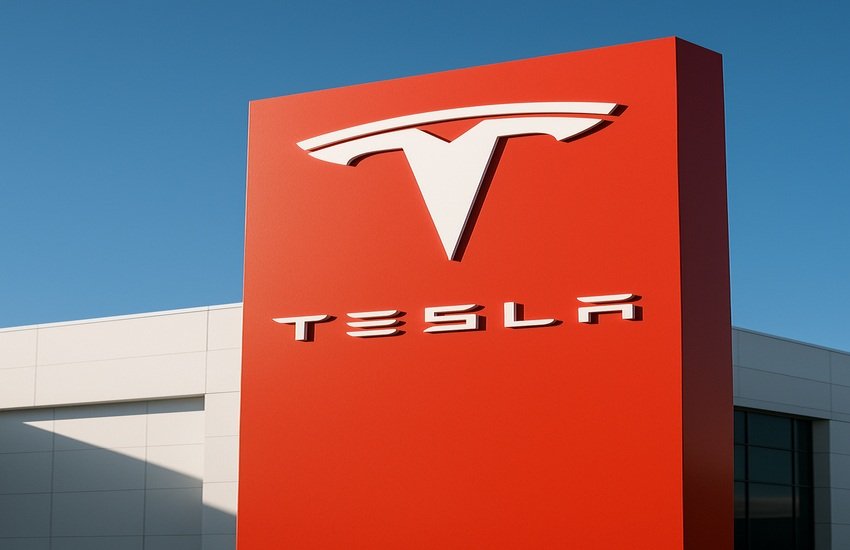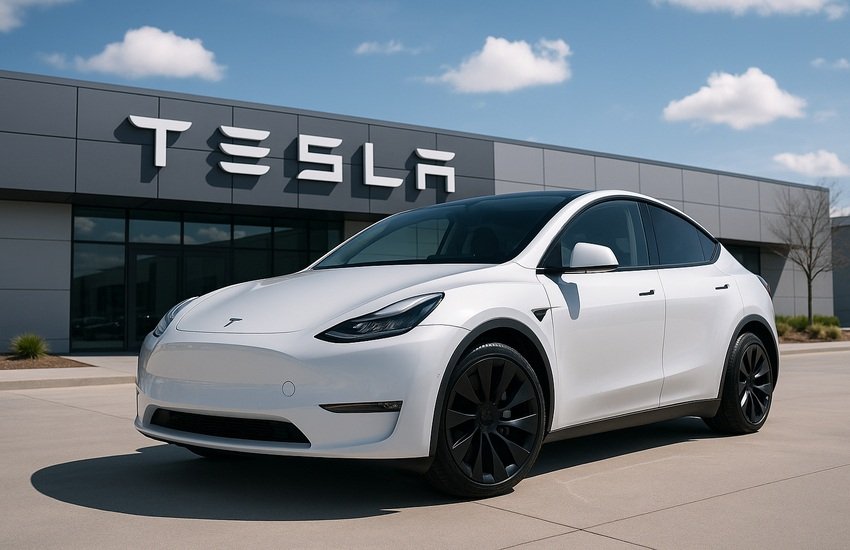Sign Up For Free To Keep Reading
In a bold and highly publicized move, Tesla CEO Elon Musk recently purchased $1 billion worth of Tesla shares, raising questions about whether this insider action can restore near-term investor confidence in the electric vehicle giant. Coming on the heels of a tumultuous few quarters marked by falling regulatory credit revenue, inflationary cost pressures from tariffs, and increased capital expenditures for AI and energy storage initiatives, the purchase is being framed as a powerful show of confidence in Tesla’s long-term vision. At the same time, Tesla’s recent Q2 2025 results showcased significant advancements including the rollout of robotaxis in Austin, substantial progress on Optimus humanoid robots, and growing traction for FSD software. Despite these positives, the company continues to trade at some of the most elevated valuation multiples in the market, sparking a debate on whether Musk’s buy signals a real turning point or merely a short-term sentiment play.
Insider Confidence Signal
Elon Musk’s $1 billion stock purchase is one of the largest insider buys in recent history, a rare move that signals deep confidence from a CEO who already holds a significant ownership stake in the company. For many institutional investors and retail traders alike, such a move is seen as a key green flag — especially in a macroeconomic environment where leadership conviction can be more powerful than earnings guidance. Musk’s decision comes as Tesla rolls out its robotaxi service in Austin, with plans to expand into major metro areas across the U.S., and potentially reach half the U.S. population by year-end subject to regulatory approval. The robotaxi program represents a fundamental shift in Tesla’s operating model toward an AI-first, service-based revenue stream, and Musk’s move to increase his stake amid this transformation adds credibility to these ambitions. Furthermore, Tesla is ramping the production of Optimus humanoid robots with a goal of hitting 1 million units annually within five years — an aspiration Musk has described as more valuable than Tesla’s vehicle business. From an insider transaction standpoint, this purchase reduces uncertainty about Musk’s commitment to Tesla, especially after previous concerns around his dual leadership roles at xAI and SpaceX. For investors wondering whether the CEO might shift his focus elsewhere, this buy affirms his priorities and underscores that he views Tesla as a central pillar of future technological disruption. In short, Musk is literally putting his money where his mouth is — a move that rarely fails to shift market narratives, at least in the near term.
Investor Sentiment Boost
Elon Musk’s high-profile purchase is already generating waves across investor sentiment channels, with retail forums and institutional research notes buzzing about its potential implications. Following the announcement, Tesla’s stock saw immediate upticks in after-hours trading, indicating that the market still attributes heavy signaling value to Musk’s actions. In an environment where Tesla’s future depends on long-cycle bets like full autonomy, humanoid robotics, and AI chip development, investor sentiment can act as both a leading indicator and a capital-raising facilitator. Tesla is currently in the midst of heavy capital investment cycles — with over $9 billion in CapEx forecasted for the year — and positive sentiment could ease pressure on free cash flows and create optionality for non-dilutive financing. Moreover, Tesla has seen a 25% increase in FSD adoption since rolling out version 12, suggesting that retail interest is translating into operational traction. That dynamic is especially important as the company pivots away from hardware-driven vehicle margins toward software-based recurring revenues. Musk’s purchase could also help stabilize sentiment ahead of the potential Q4 expiration of EV tax credits in the U.S. — an event expected to pressure deliveries and margins. As regulatory uncertainty looms and Tesla faces competition from domestic and Chinese EV makers, the perception that Musk is ‘all-in’ may help anchor investor confidence and reduce stock volatility. While fundamentals matter in the long run, near-term investor behavior is often shaped by confidence and perception — and this purchase reshapes both, at least temporarily.
Short-Lived Impact
While Musk’s share purchase generated headlines and spiked short-term enthusiasm, history shows that insider buying — even of this magnitude — often fails to sustain long-term price momentum without concurrent improvements in fundamentals. Tesla’s Q2 report revealed several ongoing challenges: an abrupt repeal of the $7,500 EV credit under the One Big Bill, rising tariffs that added roughly $300 million to costs in just one quarter, and a slower-than-expected ramp of the lower-cost model due to resource allocation toward U.S. deliveries. Despite improved ASPs for the Model Y and higher FSD adoption, the underlying profitability drivers remain under pressure. The company also noted that the full impact of tariff-related cost inflation will be reflected in the upcoming quarters, suggesting margin compression is not yet fully visible in the financials. Meanwhile, Tesla is forecasting a heavy $9 billion CapEx burden this year, mainly directed toward its autonomy, AI compute infrastructure, and manufacturing capacity for the Optimus robot and Cybercab. Given these structural headwinds, there is a risk that Musk’s purchase may function more as a PR event than a sustained confidence driver. It’s also worth noting that Musk already owns a substantial stake in Tesla, so additional buying may not change the underlying governance structure or strategic direction in a meaningful way. The move does little to address market concerns about execution risk in autonomy, regulatory hurdles for FSD, and volatility introduced by Bitcoin holdings. Unless followed by sustained improvements in free cash flows and operating margins, this insider action could be quickly overshadowed by Tesla’s broader financial and operational realities.
Underlying Risks Remain
Despite Musk’s high-profile endorsement, several systemic risks continue to plague Tesla’s business model, casting doubt on the lasting impact of the purchase. The company’s LTM valuation multiples remain among the highest in the sector: a trailing EV/Revenue of 13.94x, P/S of 14.19x, and a staggering EV/EBIT of 226.19x. These levels imply growth expectations that are both aggressive and vulnerable to disruption. Tesla’s current free cash flow yield sits at just 0.4%, far below the threshold many institutional investors consider viable for large-cap tech exposure. Additionally, Tesla’s revenue remains heavily tied to hardware despite its ambition to pivot toward services. Regulatory credit revenue, once a buffer to volatile automotive margins, is expected to decline as new rules reduce penalties for non-compliance. Internationally, the company still lacks approval for supervised FSD in Europe and China, which Musk described as “Kafka-esque” regulatory challenges that could delay monetization in these critical markets. Meanwhile, Tesla faces ongoing questions about its governance structure — with Musk publicly stating concerns about having only a 13% stake and the risk of being ousted by activist shareholders, which introduces further instability. While AI Day and investor events may temporarily redirect attention, the fundamentals — from declining incentives to increasing cost pressures — remain intact. The company is also exposed to hardware supply chain risks, as seen in the slower ramp of new vehicle models and the potential delays in scaling Optimus production. In sum, the structural risks facing Tesla are significant, and a stock purchase, no matter how large, does not mitigate these business realities.
Key Takeaways
Elon Musk’s $1 billion Tesla share purchase is a strong insider signal that has temporarily improved investor sentiment and sparked discussions about Tesla’s long-term strategic pivot toward autonomy and AI. The move aligns with major product rollouts such as robotaxi expansion, Optimus development, and the introduction of more affordable EV models. However, the underlying financial metrics suggest caution. Tesla’s LTM EV/EBIT stands at an inflated 226.19x, while its trailing P/E exceeds 238x — multiples that imply aggressive growth despite persistent regulatory, cost, and execution risks. While Musk’s purchase may provide short-term support to the stock, it does little to address the company’s high valuation, low free cash flow yield, and growing dependence on future-state narratives like AI and robotics. In weighing the bullish sentiment against structural headwinds, the move appears more symbolic than transformative, offering limited near-term clarity on whether Tesla can sustainably meet the market’s lofty expectations.






